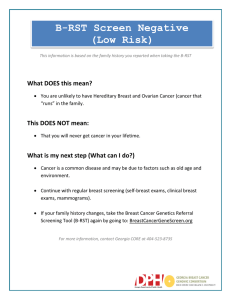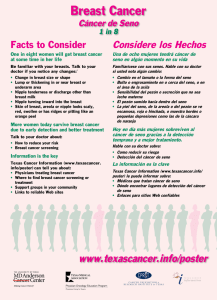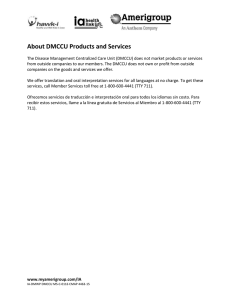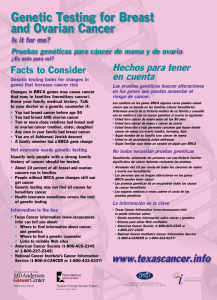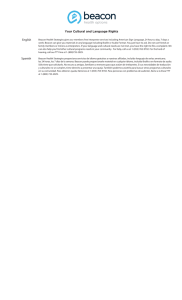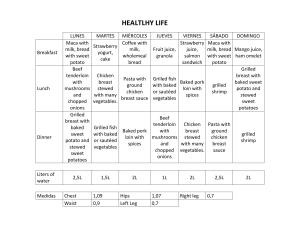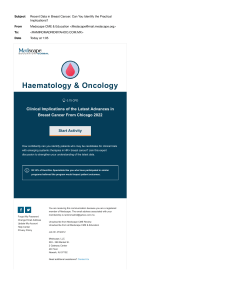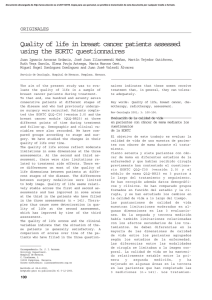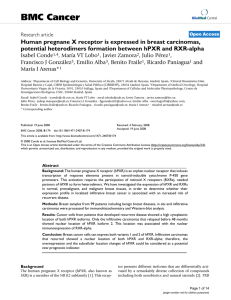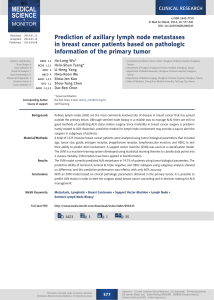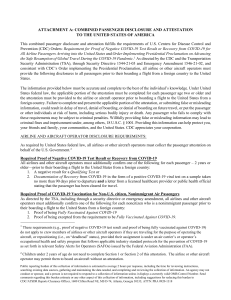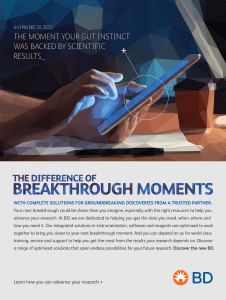I had to fight. - The Right to Know
Anuncio
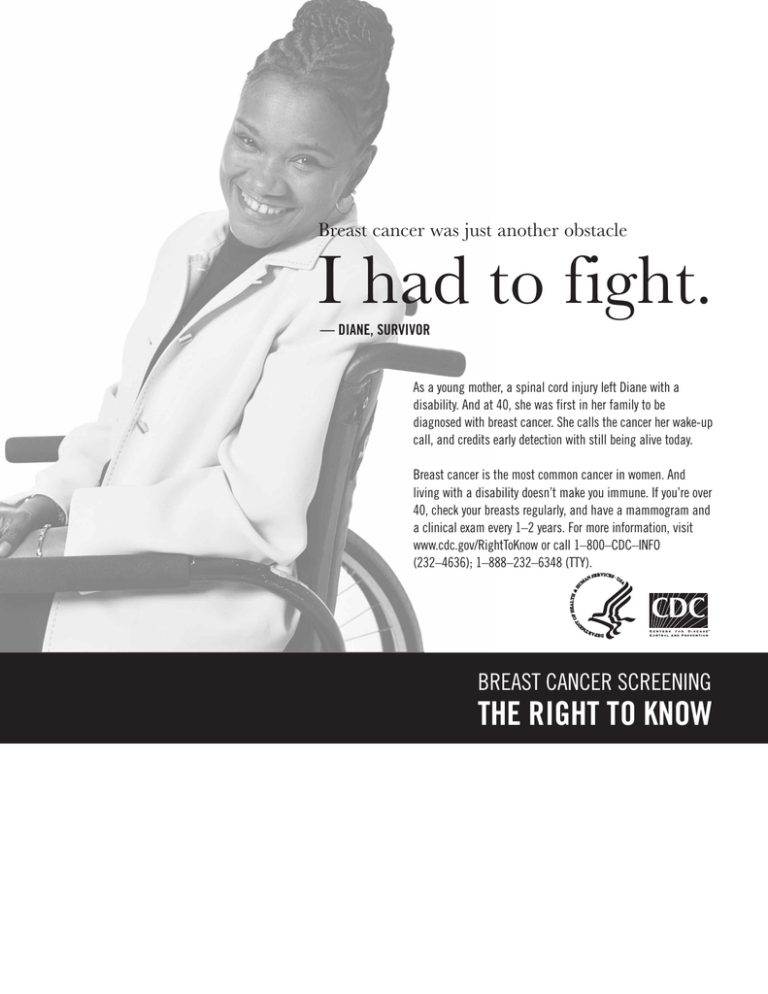
I had to fight. Breast cancer was just another obstacle — DIANE, SURVIVOR As a young mother, a spinal cord injury left Diane with a disability. And at 40, she was first in her family to be diagnosed with breast cancer. She calls the cancer her wake-up call, and credits early detection with still being alive today. Breast cancer is the most common cancer in women. And living with a disability doesn’t make you immune. If you’re over 40, check your breasts regularly, and have a mammogram and a clinical exam every 1–2 years. For more information, visit www.cdc.gov/RightToKnow or call 1–800–CDC–INFO (232–4636); 1–888–232–6348 (TTY). BREAST CANCER SCREENING THE RIGHT TO KNOW It’s your life. And no one can protect it better than you. — JUDI, BREAST CANCER SURVIVOR Judi, a cancer survivor who lives with cerebral palsy, reminds us that living with a disability does not make us immune to breast cancer. And early detection is the key to living. If you’re over 40, check your breasts regularly, and have a mammogram and a clinical exam every 1–2 years. For more information, visit www.cdc.gov/RightToKnow or call 1–800–CDC–INFO (232–4636); 1–888–232–6348 (TTY). BREAST CANCER SCREENING THE RIGHT TO KNOW It may take more energy, but it’s worth it. — JUNE, BREAST CANCER SURVIVOR June, who was born with cerebral palsy, knows first-hand that we’re not immune to breast cancer just because we live with a disability. She tells us to ask for an accessible screening and not let the system decide what’s best. Finding her cancer early allowed June to go on with her life. Screening allowed her to take control. If you’re over 40, check your breasts regularly, and have a mammogram and a clinical exam every 1–2 years. For more information, visit www.cdc.gov/RightToKnow or call 1–800–CDC–INFO (232–4636); 1–888–232–6348 (TTY). BREAST CANCER SCREENING THE RIGHT TO KNOW We have to take care of ourselves before we can take care of others. — HELEN, BREAST CANCER SURVIVOR Helen, a two-time cancer survivor, wants to be an inspiration to others. Despite her chronic rheumatoid arthritis, she leads a full and active life. Helen credits screening and early detection with still being alive today, and reminds us to take care of ourselves first if we want to be there for our loved ones. If you’re over 40, check your breasts regularly, and have a mammogram and a clinical exam every 1–2 years. For more information, visit www.cdc.gov/RightToKnow or call 1–800–CDC–INFO (232–4636); 1–888–232–6348 (TTY). BREAST CANCER SCREENING THE RIGHT TO KNOW Tiene que cuidarse primero para poder cuidar a otros. — HELEN, SOBREVIVIENTE DEL CÁNCER DE SENO Helen, quien ha superado el cáncer de seno en dos ocasiones, desea ser una inspiración para todos. Pese a su artritis reumatoide crónica, vive una vida plena y activa. Helen aclara que es gracias a los exámenes y a la detección temprana que todavía está viva, y nos recuerda que, para que podamos estar con nuestros seres queridos, primero debemos cuidarnos a nosotras mismas. Si usted ya cumplió 40 años, hágase examinar los senos periódicamente y hágase una mamografía cada 1 o 2 años. Para obtener más información visite www.cdc.gov/RightToKnow o llame al 1–800–CDC–INFO (232–4636); 1–888–232–6348 (TTY). EXÁMENES MÉDICOS PARA DETECTAR EL CÁNCER DE SENO EL DERECHO DE SABER BREAST CANCER AFFECTS ALL OF US. Breast cancer is the most common cancer in women. And living with a disability doesn’t make you immune. If you’re over 40, check your breasts regularly, and have a mammogram and a clinical exam every 1–2 years. For more information, visit www.cdc.gov/RightToKnow or call 1–800–CDC–INFO (232–4636); 1–888–232–6348 (TTY). BREAST CANCER SCREENING THE RIGHT TO KNOW EL CÁNCER DE SENO NOS AFECTA A TODAS El cáncer de seno es el cáncer más común entre las mujeres. Y el hecho de vivir con una discapacidad no nos inmuniza. Si usted ya cumplió 40 años, revísese los senos con frecuencia y hágase una mamografía y un examen clínico cada 1 o 2 años. Para obtener más información visite www.cdc.gov/RightToKnow o llame al 1–800–CDC–INFO (232–4636); 1–888–232–6348 (TTY). EXÁMENES MÉDICOS PARA DETECTAR EL CÁNCER DE SENO EL DERECHO DE SABER
